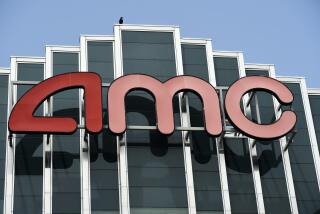Price Cut for MAI Offering
- Share via
Sometimes it is hard to figure out what something is worth. Take, for example, the recent public offering of common shares of MAI Basic Four Inc. Originally proposed to go public at between $17 and $20 a share, the stock became available on June 24 at $15.
But the shares didn’t stay at that price long. By the end of the first day of trading, MAI Basic Four hit a new low, touching off a more or less steady slide that by Tuesday had taken the stock to just $11.375 a share.
Since then, the shares have rebounded slightly to close Friday at $12.875 a share, off 12.5 cents a share for the day and the week.
Has the market been questioning the need for another computer company? Or was the price slide merely the result of bad timing in taking a company public on the eve of a deep and painful market correction--one that seemed to hit technology issues hardest of all?
There aren’t too many analysts who follow MAI Basic Four. One New York analyst who does, but asked not to be identified, thinks the price drop was because of an overall weakness of the technology group, coupled with the recent bearish turn the market has taken.
“It’s not been a good technology market since the MAI offering,” the analyst said. Not only did we have that 150-point drop in the Dow, but there are still a lot of concerns about the technology group in general.”
Driving much of the investor nervousness has been IBM’s disappointing second quarter earnings. During the three months ended June 30, Big Blue’s net earnings fell nearly 8% from a year ago. Since June 24, IBM shares have fallen nearly $15 a share to close Friday at $131.75 each.
“As a group, I think the computer stocks are undervalued and have been hammered down a little more than necessary,” the analyst said. “As a group I think there are some good values.”
MAI Basic Four, which manufactures mid-size business computers, was formed in 1971 as a subsidiary of New York-based Management Assistance Inc. In late January, 1985, a management group led by New York investor Bennett Le Bow acquired the unit through a $105-million leveraged buy-out.
Almost immediately upon taking charge, the new owners got rid of a tenth of the company’s work force, including all but four of its top 23 executives.
The cuts, coupled with the jettisoning of lackluster operations, enabled MAI Basic Four to post net earnings of $5.4 million for the 1985 fiscal year ended Sept. 30, contrasted with a $10-million net loss a year earlier.
More recently, the firm reported net earnings of $7.3 million for the fiscal 1986 first half ended March 31, contrasted with a loss of $7.6 million a year earlier. Revenues during the six-month period rose 20% to $135.8 million from $114.7 million. The 1985 figures were adjusted to reflect continuing operations and adjustments resulting from the buy-out.
According to the folks at Drexel Burnham Lambert Inc., the lead underwriter in the offering, timing was the key factor behind the drop in MAI Basic Four’s stock. You just can’t predict the market, a Drexel investment banker said. But, he said he believes the decline in MAI Basic Four’s stock price will be reversed in a renewed strong market.
Although he admits the stock’s poor performance so far has been a disappointment, Bertrand Weidberg, MAI Basic Four’s vice president and counsel, said the offering nevertheless was a “very prudent move.” The approximately $46.2 million it netted will be used to help retire bond debt and preferred stock, something which will improve future earnings, he said.
At its current price, MAI Basic Four stock is selling at a fairly low price-to-earnings ratio of 13 and probably is a pretty good buy, at least for the short term, according to Larry Butler, a broker with Newport Securities Inc.
But, Butler added, MAI Basic Four still is a computer company--and that means direct and often fatal competition with IBM, as well as a gaggle of other high-tech heavy hitters. “I would tend to stay away from it,” he said.
More to Read
Inside the business of entertainment
The Wide Shot brings you news, analysis and insights on everything from streaming wars to production — and what it all means for the future.
You may occasionally receive promotional content from the Los Angeles Times.










